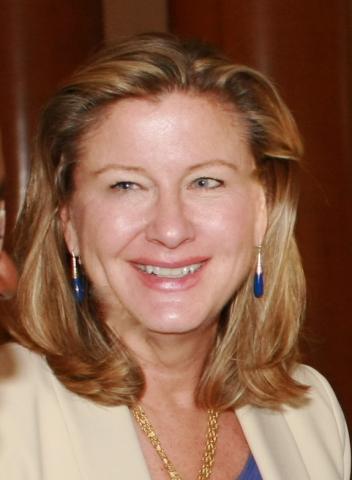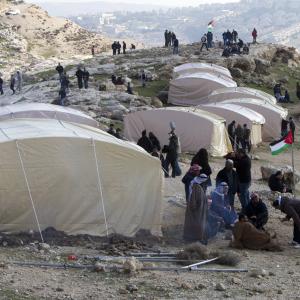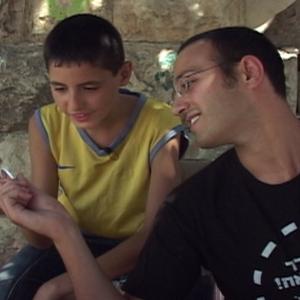
Dale Hanson Bourke is author of 11 books, including Responding to HIV/AIDS, and editor of PracticingFaith.com.
Posts By This Author
Young Women Rising
FOR NON-WHITES born in post-apartheid South Africa, the country promised equal rights and legal freedom. But the first generation of “born frees,” as they are called, also entered a world where HIV/AIDS was destroying their families and communities. Many children and teens were left largely fending for themselves in townships plagued by poverty, disease, and violence.
Author Kimberly Burge, a Sojourners contributing writer, entered this world not as an aid or social worker, but rather on a Fulbright scholarship, to form a writing group for adolescent girls in the township of Gugulethu. Too old for the child-centered programs and too young for adult assistance, the girls were falling through the cracks of established programs. The writing club offered them the opportunity to creatively express their fears, frustrations, and dreams.
To Burge’s credit, the book is not primarily about her or her experiences. She keeps the focus on the girls themselves and the often breathtaking words and thoughts they express in their writing. Burge is not there to rescue them, but rather to help them find their voices. She acts less as a teacher than a peer, encouraging girls to lead the group themselves and prompting them to write about such topics as “I wish I could ...” or “I need to find a place ...”
5 Points About the SodaStream-Oxfam Dust-up
In the run-up to the Super Bowl, advertisers work hard to get their money’s worth, even before their spot has run. They leak teasers and hype the stars who will appear in them. If they can find a way, they generate controversy.
This year, SodaStream is already the big winner in the controversy category. One of the dust-ups surrounds a tug of war between SodaStream and Oxfam International over Scarlett Johansson, who recently accepted a role with the carbonation company and will appear in its Super Bowl ad.
On Wednesday, Johansson resigned her eight-year-long goodwill ambassadorship with Oxfam, citing a "fundamental difference of opinion."
The Remarkable Power of Peace + Social Media
Last week, while most of Israel was focused on increasingly extreme rhetoric surrounding the upcoming elections and most Americans were listening to angry debates about guns and fiscal responsibility, a remarkable thing happened. A few dozen Palestinians captured the world’s attention quietly and peacefully.
Their methods were simple and witty. Following the example of Israeli settlers, they established “facts on the ground.” The group of Palestinians quietly hiked up a barren hillside in cold, wet weather and pitched tents, declaring themselves part of the new village of Bab al-Shams, or Gate of the Sun, a name taken from the novel by Lebanese writer Elias Khoury.
Their village was established on private, Palestinian land and the landowner (who publicly displayed his Ottoman era deed) gave them permission to camp there. But that particular piece of land is also known on an Israeli development plan map as “E-1” and came to the attention of the world recently when Prime Minister Netanyahu announced plans to annex the land for Israeli settlements. Many believe that move, which would essentially bifurcate the West Bank, would be the deathblow to the “Two State Solution.”
Celebrating the Miraculous on World AIDS Day
As people of faith, it is not uncommon to pray for miracles when faced with overwhelming obstacles. For many of us, AIDS has been one of those mind-boggling, heart-wrenching causes that has wreaked havoc on the world and been the subject of many prayers.
Since the early days of the disease, the focus has been on a cure. Researchers worked tirelessly for it and the faithful asked God to provide it. But the cure has never come.
And yet, as we mark another AIDS Day this Saturday, Dec. 1, there is evidence of the miraculous.
After 24 years of commemorating this day with grim statistics and little hope, there is finally good news.
Millions of people are receiving treatment. Many fewer people are dying.
The new infection rate has dropped by 50 percent or more in 25 countries since 2001. With access to treatment, being HIV-positive is now considered a chronic disease, not a fatal one.
The Power of Attention in East Jerusalem
The problem with peaceful protests is that they lack all the headline-grabbing horror of wars and terrorist attacks. They lack the “power of attention” as filmmaker Julia Bacha likes to say, and that is part of what compelled her and others to produce the documentary, “My Neighborhood,” premiering this week at the Tribeca Film Festival.
Bacha and her team from Just Vision are best known for their award-winning film “Budrus,” the story of a peaceful protest by Palestinians against the Israeli “security wall” that was planned to bi-sect their village. The film, shown in theatres, churches and on campuses, has helped create a dialogue not only about peaceful Palestinian protests, but also about the Israeli activists who have allied with them.
Confessions of a (Reforming) Bookaholic
A Personal Pandemic
The problem with a disease defined by an extraordinary number of dead, infected, and orphaned is that it is all too easy to lose sight of the individual.
In a Godly Way
Several years ago I wrote a column on faith and families to be distributed to secular newspapers.




